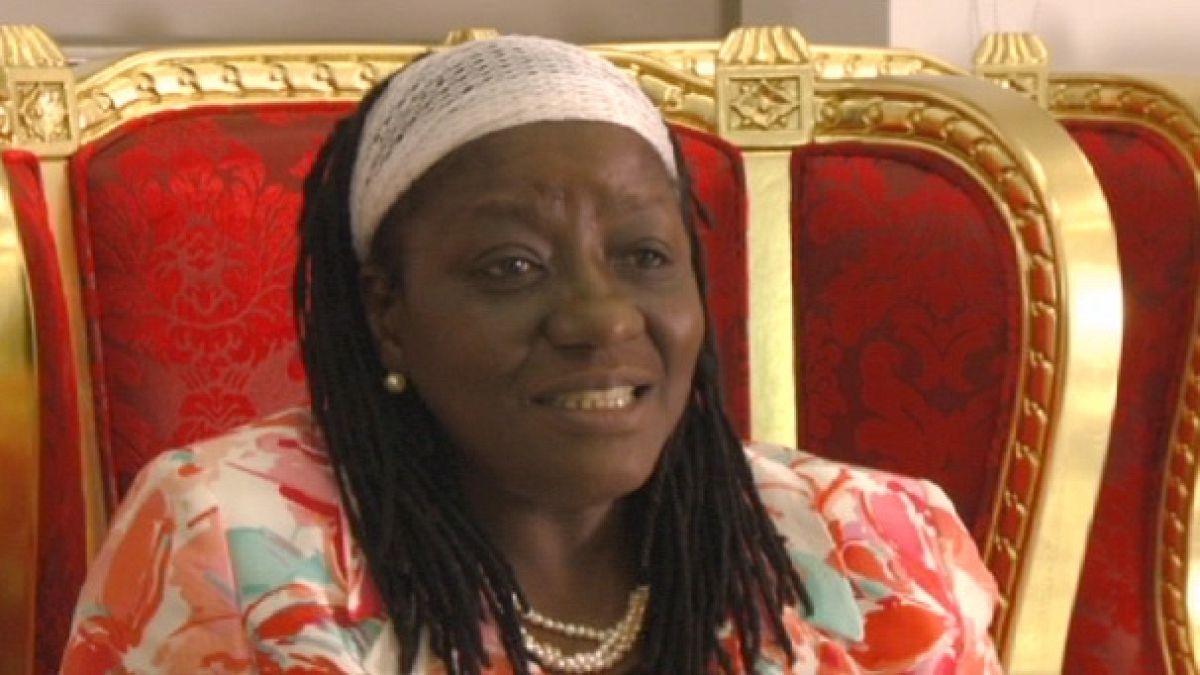Euronews’ Francois Chignac met and talked with Bience Gawanas at the 17th summit of the African Union, held in Equatorial Guinea.
She is the Commissioner for Social Affairs on the African Commission and reckoned by many to be among the 200 most powerful women in the world.
François Chignac: “Bience Gawanas, my first question is simple – is there still unity in Africa?”
Bience Gawanas: “I fought for the liberation of Namibia and as we know Namibia was one of the countries that the organisation of African Unity, the forerunner of the AU, really supported and fought for the liberation of Africa and the liberation of Namibia. So I come to the African Union as someone who benefited from that support.
‘It was very difficult to live as an exile and as a refugee in refugee camps all over the world but today I am sitting here as the Commissioner for Social Affairs coming from an independent Namibia and for me therefore the unity of Africa, the unity of Africa for the development of our continent for the peace of our continent and for prosperity on our continent is as important as it was when we were fighting against colonial domination of this continent.
‘So unity is no doubt one of the major objectives of the African Union but we are dealing with 53 countries. Fifty three countries who have a different pace of development which we have got in one country. We already have so many differences in terms of ethnicity language etc, but I want to remain confident.
François Chignac: “What is the future for women in Africa?”
Bience Gawanas: “Firstly I think I was very privileged to be amongst the first women to serve on the commission. The African Commission is the first international organisation in the world where you have got five men and five women as members of the commission.
‘I also want to believe that if women see us in those positions they see the changing face of the organisation and hopefully the changing face of the continent.
‘Fortunately during my lifetime I had the chance to see a woman becoming a president in Africa. It was a pipe dream, it was something I thought I would never see. So I want to believe the more women get involved in the African Union, the more our own governments will involve women in different levels of government. We will definitely see a move towards it.
‘There is a saying that says women do not create conflicts but they suffer the consequences of conflicts and therefore it is important that when we are discussing peace that women also are part of those discussions because across the borders of this continent women have already forged links.
‘They have worked together within the women’s movement. The women trade across the borders into each others countries. So there is a greater unity on this continent and if we can build on that strength I want to believe we can make a meaningful contribution.
François Chignac: “Yet it is men who have the power on this continent.”
Bience Gawanas: “African men have to understand that we are equal and I always want to use the example that we should not forget the history of this continent that when we were fighting for the liberation of this continent women were there.
‘They were in the trenches, they were carrying guns they were battling and they deserve a better life in an independent Africa. And I have always said that the standard against which we measure equality is not a male standard. I don’t want to become a man I love being a woman and I want to be loved as a woman and respected as a woman.”
François Chignac: “So in practical terms what do you want to happen.”
Bience Gawanas: “I want us to show African women as also being very powerful, not powerful as orators, not powerful in their visibility but powerful in their silence, powerful in their villages, in their communities and making that difference.
‘I think it can be better. I wish I could have this magic wand I could just blow across this continent and just say please recognise the capacity of women to make a change in our continent. I don’t know if it will happen during my lifetime.”
François Chignac: “What inspired you to fight so hard?”
Bience Gawanas: “If I was a pessimist I would not have been were I am today. I come from a country called Namibia. I grew up under apartheid and I was told when I was trying to study that my intelligence as a black child is lower than that of a white child and that I would never be able to study law I was 18 at that time. I am a lawyer today. I have decided the colour of my skin and my gender have nothing to do with my intelligence.”
François Chignac: “Thank you for responding so openly to questions Euronews.”
